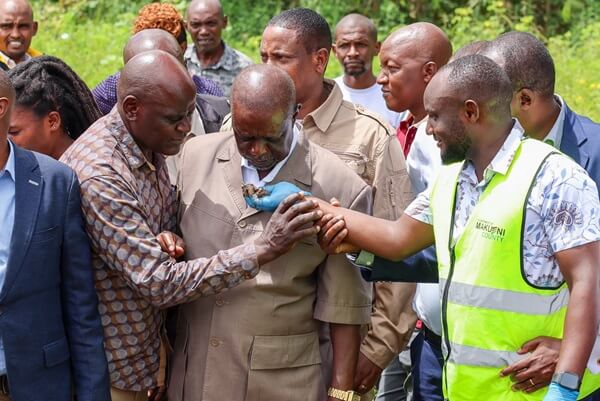The Senate Standing Committee on Energy has directed a renewed clean-up of the oil-polluted Thange River in Makueni County, a decade after a leak from the Mombasa-Nairobi pipeline devastated the local environment and community.
During a fact-finding mission to the area, the committee, chaired by Senator Oburu Odinga, called for immediate measures to protect affected residents. These include urgent medical support, compensation, and access to clean drinking water. “First, there must be clean and sufficient drinking water for the residents of Thange,” Odinga emphasized.
The oil spill, which occurred on May 12, 2015, reached Thange River by mid-June that year, contaminating the land and water. Despite earlier emergency responses and ongoing clean-up efforts, residents continue to face serious health issues. Kidney failure, cancer, and heart complications have become prevalent, with some cases proving fatal.
Makueni Governor Mutula Kilonzo Jr revealed that the oil seepage extends 15 feet underground, making full remediation difficult. “The aftermath continues to claim lives,” he said, lamenting the slow and inadequate response by the Kenya Pipeline Company (KPC) and the National Environment Management Authority (Nema).
The Senate committee criticized KPC for failing to fully take responsibility. Though KPC claims to have compensated 342 households with Sh38 million and proposed a borehole project, disputes over the location stalled implementation. The company maintains that it has been cleaning the site for over three years using expert support.
Meanwhile, Nema had issued a scale-down and decommissioning notice in April 2025, citing test results indicating no hydrocarbons in the water or soil. However, during the Senate visit, Nema Director General Mamo Mamo admitted the agency would reassess its stance. “We will relook at the whole thing now that new evidence is coming up,” he said.
Local leaders and residents expressed deep frustration, citing lost livelihoods, unproductive farmland, and unsafe water. Erick Musyoki Katumo, Thange MCA, called on the Senate to ensure justice for the community. “Our land is no longer usable. We now rely on towns like Wote for basic food,” a resident shared.
The Senate’s directive renews hope for a lasting solution to one of Kenya’s most persistent environmental disasters.

